People who love learning, usually love reading. Hence, education books can often be “an event” across the school sector, as teachers share their ideas and pass on wisdoms.
Where in recent years a variety of big, serious books topped the charts, such as John Hattie’s huge compendium of education research studies, this year took a lighter approach – with more home-grown, classroom-based talent coming to the fore.
For our money, these are the books that caused the biggest splashes and got people thinking the most. If you missed them, use those Christmas vouchers to get them on your shelves!
1 – Don’t change the light bulbs: A compendium of expertise from the UK’s most switched-on educators
Edited by Rachel Jones
Whoever said the internet would usher the end of books was wrong. The internet created this one.
Long-time Twitter maven and digital learning guru Rachel Jones worked with teachers across the country, age and subject-spectrum to create a treasure trove of teaching morsels. The book is outrageously good – each section with its own theme. One, on history, emulates an ancient Egyptian text. Another, on collaboration, is emblazoned with interconnected Scrabble words.
If you’re not a softie for visuals, the words are fantastic too. Tips range from specific ways to deal with behaviour through to running an education event for adults. Reading it is like sitting in the staffroom with all the wisest people you’ll meet across your career. It’s a fabulous idea for a book, and the fact much of it was completed via social networks is a game-changer. I hope 2015 will bring another edition.
2 – The Best Job in the World
By Vic Goddard
Vic Goddard let the public into his school during TV show Educating Essex and they watched him deal with difficult teenagers. Most teachers, even if they strongly believe in their own competence levels, would shudder at the thought. But Goddard is an unusual human – warm, funny, able to shake off the world’s woes by repositioning it as learning. And he’s honest. Sometimes, brutally so.
The book meanders through his journey into leadership, the “Educating Essex years”, and some of his most difficult moments (his 2013 GCSE results being particularly “rubbish”). Laugh-out-loud funny and downright inspirational, it does a wonderful job of reminding teachers that the beauty of the work is often in its earthiest moments. If not a game-changer of a book, it certainly reminds that teaching really is the best job in the world.
3 – Progressively Worse: The Burden of Bad Ideas in British Schools
By Robert Peal
Private schools are ace because they teach in traditional ways. Comprehensive schools suck because the teachers are cuddly hippies who let kids do whatever they want and teach “thinking” rather than history.
That’s a slight exaggeration of Robert Peal’s thesis in Progressively Worse, but not by much.
The most persuasive part of the books is that teachers increasingly bought into progressive ideas over the 20th century. That schools stopped caning is testament that. But what’s not so clear is whether teachers really did abandon traditional teaching methods at the rate Peal claims. Look in most schools and lessons don’t look vastly different to ones delivered years ago, and where they do, the learning is often better.
Peal is an historian, so he rightly defends his being picky about evidence and not trying to “prove” anything scientifically. But some may nevertheless find his particular brand of history a little too one-sided for comfort.
4 – Teaching: Notes from the Front Line
By Dr Debra Kidd
The ying to Peal’s yang, Debra Kidd’s book calls for a “revolution” in education, arguing that current schooling is based on uniformity even though children’s progress is never so neat.
Kidd also eschews uniformity in teaching practices. Begone learning objectives!, she says, while also casting out Ofsted-dictated lessons and grading teachers on the quality of their lesson. Continuing this them, Kidd annihilates international comparison tests such as PISA (governments take away the wrong lessons from them), and she complains about teacher training programme TeachFirst (their graduates are too influential). There’s also the typical “let’s not rely on exams” call.
All of which sounds like it should add up to a rather rousing call for change . . . except . . . it’s not entirely clear what the change should be. “Embracing complexity” is about as far as it gets in its revolution.
Peal and Kidd have often been pitted against each other this year, and sparks have flown. But it strikes me that both are perhaps too far towards revolution and not quite close enough to pragmatism. Let’s hope they will both have follow-up books in 2015 telling us what the next (actual) step should be!
5 – A Practical Guide to the Pupil Premium
By Marc Rowland
Find me a teacher not scratching their head about how best to use the ‘pupil premium’ [cash given to support poorer pupils’ achievement] and I will find you someone about to get themselves into serious trouble. Schools should know how their premium cash is being spent, and complaining that the issues involved are more complicated than £900 can solve won’t satisfy the inspector.
Thankfully, smarty Marc Rowland, in collaboration with The National Education Trust, has some answers. Rowland describes the premium, how to make sure eligible students apply to receive it, and ensure they benefit from it. There’s a particularly neat chapter on special schools and how they should separate socio-economic disadvantage from medial or ability-related needs – with a case study of a school that did just this.
It’s an important book because it gives a template for pupil premium reviews and steps schools through the headache of documenting the use of the money. It doesn’t, yet, give a list of ways to best use the premium, though. Which is a shame, as that’s pretty much been the question of the year.

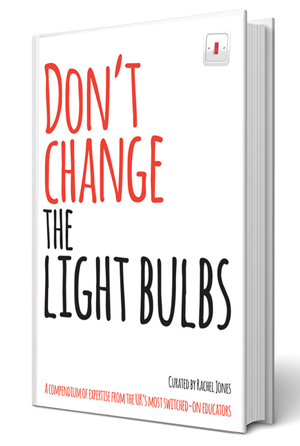
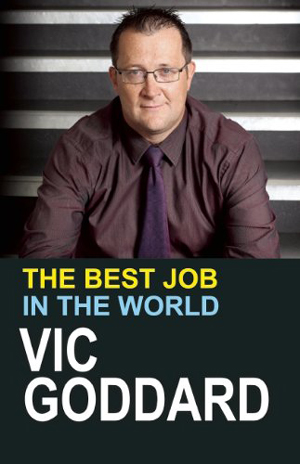
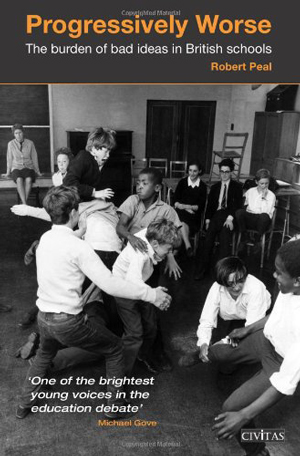
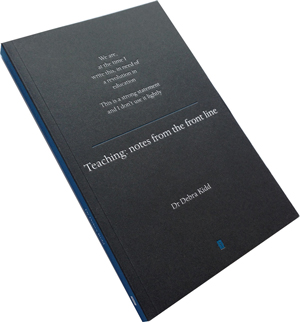
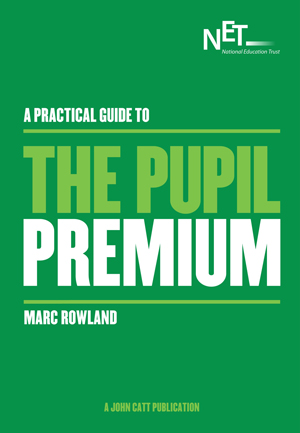
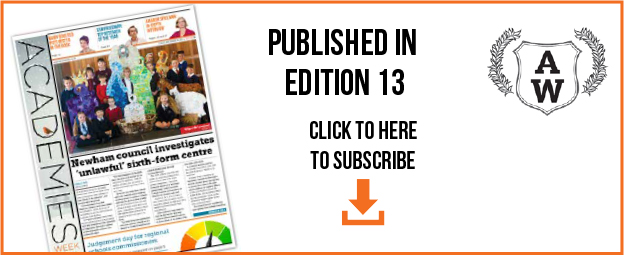











Your thoughts